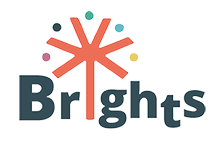Are you interested in Global Citizenship Education? Doesn’t matter, if you are a primary school teacher or an expert on gender equality, if you volunteer as a youth worker or you operate in the field of social inclusion and cultural diversity – we want to hear your voice!

Telecentre Europe, in collaboration with the partners of the Erasmus+ KA3 project “BRIGHTS – Boosting Global Citizenship Education using digital storytelling”, is promoting an open call for contribution to collect opinions, open educational resources, reports and any other material that can be exploited for the design and implementation of a MOOC for European teachers and trainers.
The call will stay open for the duration of the project, but if you really want to influence our research on training needs, you should share your contents and point of view before May 5, 2017.
Many relevant stakeholders are currently contributing from the different EU countries, represented in the partnership.
In Italy, we have interviewed experts from the National Alliance for Sustainable Development (ASviS – Alleanza Nazionale per lo Sviluppo Sostenibile), the Association of Virtuous Municipalities (ComuniVirtuosi), the General States of Innovation (Stati Generali dell’Innovazione) and the Table of Peace, an umbrella organisation of cities and schools that promote e Peace and Human Rights education.
In Belgium, we have already met with Kleur Bekennen/Annoncer la Couleur (a Belgian organisation that disseminate and support World citizenship education in schools), the Flemish knowledge center of media knowledgeMediawijs, the Belgian state agency for development cooperationBTC/CTB and Teach for Belgium (a training organisation for teachers who teach in schools with a low socio economical index).
In Croatia, the first to be interviewed were the experts from the Centre for Peace Studies (Centar Za Mirovne Studije), immediately followed by the Croatian Youth Network (Mreža mladih Hrvatske), B.a.B.e. Be Active Be Emancipated that has a particular expertise on gender equality and the CEDRA national cluster for eco-social innovation and development.
In the context of our field research in Greece, we visited the Koinoniko Polykentro – the research and training institute of ADEDY (the Greek Civil Service Confederation). We have also interviewed experts in the Center for Cross-Cultural Psychology and the Centre of Cross-Cultural Education of the University of Athens. Interviews have also been held in the Kethea Mosaic Centre that seeks to facilitate the social integration of migrants and refugees and in particular drug addicts.
Moreover, many other experts, teachers and trainers are taking part at face-to-face interviews, focus groups and online surveys, providing us with precious information and suggestions.
You can do the same! Visit our website and fill the open call for contribution, and if you want to meet and discuss with international peers, join our dedicated working group on the Unite-IT Platform or follow us on Facebook and Twitter!
